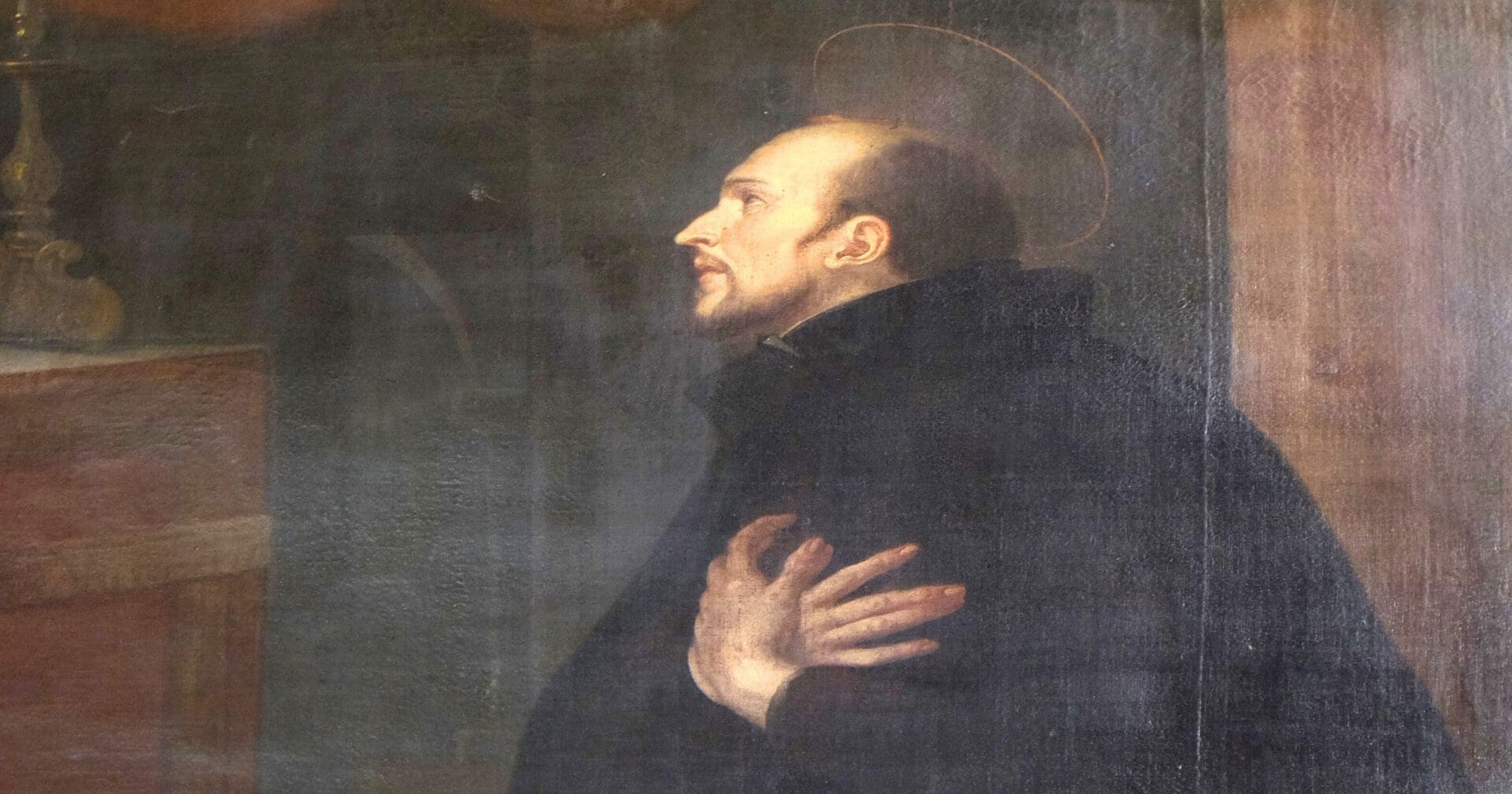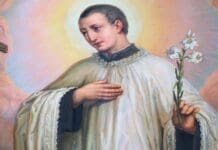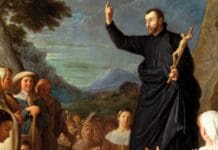Born in the Duchy of Gandia, Valencia on October 28, 1510, Saint Francis Borgia was a man of notable ancestry. He was the son of Juan de Borgia, the 3rd Duke of Gandia, and Joana of Aragon. His lineage even connected him to King Ferdinand II of Aragon and Pope Alexander VI, making him the great-grandson of the latter.
The Borgia name also carried its share of controversies. Francis’s grandfather, Juan, believed to be assassinated by the notorious Cæsar Borgia, was the second son of Pope Alexander VI. Despite the family’s tumultuous history, it was through Francis’s grandmother, Maria Enriquez, and his aunt, Isabel, that a sense of sanctity and reparation started to come into the Borgia family.
Young Francis showed signs of deep piety, dreaming of monastic life. However, his family had other plans, introducing him to the court of Emperor Charles V. Here, he excelled, even marrying Eleanor de Castro Melo e Menezes, with whom he had eight children. In 1539, he undertook the somber duty of transporting the deceased Empress Isabella of Portugal to Granada. Struck by the fleeting nature of life while observing the late empress, he vowed to “never again serve a mortal master.”
However, life had more responsibilities for him. He served as the viceroy of Catalonia, displaying commendable administration skills. Following his father’s death and his own rise as the Duke of Gandia, Francis chose a life centered on faith. The death of his beloved wife, Eleanor, in 1546 was a turning point. Relinquishing his titles, he joined the Society of Jesus as a priest.
Although initially resisting higher ecclesiastical roles, Francis’s talents and reputation inevitably propelled him upwards. By 1565, he became the third Superior General of the Jesuits. Under his leadership, the order flourished, establishing the Collegium Romanum, which would later evolve into the Gregorian University, and dispatching missionaries globally. Despite his significant responsibilities, Francis was celebrated for his humility, often being regarded as a living saint.
Francis Borgia passed away on September 30, 1572, in Rome. His journey to official sainthood began with his beatification by Pope Gregory XV in 1624 and was concluded with his canonization by Pope Clement X in 1670.
Editorial credit: Zvonimir Atletic / Shutterstock.com



















The Holy Catholic Church is a blessing to this world.
Saint Francis Borgia, pray for us.
O St. Francis Borgia, please give my courage to face all difficulties (for private intercession).
O Lord Jesus Christ,
Who art both the example and the reward of true humility:
we beseech Thee that even as Thou
didst make blessed Francis glorious
by following Thee in despising earthly honors,
so Thou wouldst suffer us also to become his companions
alike in following Thee and in his glory.
Who liveth and reigneth with God the Father,
in the unity of the Holy Ghost, one God,
world without end.
Amen.
Ecce Crucem Domini!
Fugite partes adversae!
Vicit Leo de tribu Juda,
Radix David! Alleluia!
Saint Anthony pray for us. For Italy. For Mother Church.
Saint Francis Borgia, pray for us. Restore Rome. Heal all rebellious Jesuits. Bring them back to the Catholic Truth of trusted teachings of scripture, dogma, doctrine, Magisterium, Founding Fathers and Christ Crucified. Amen.